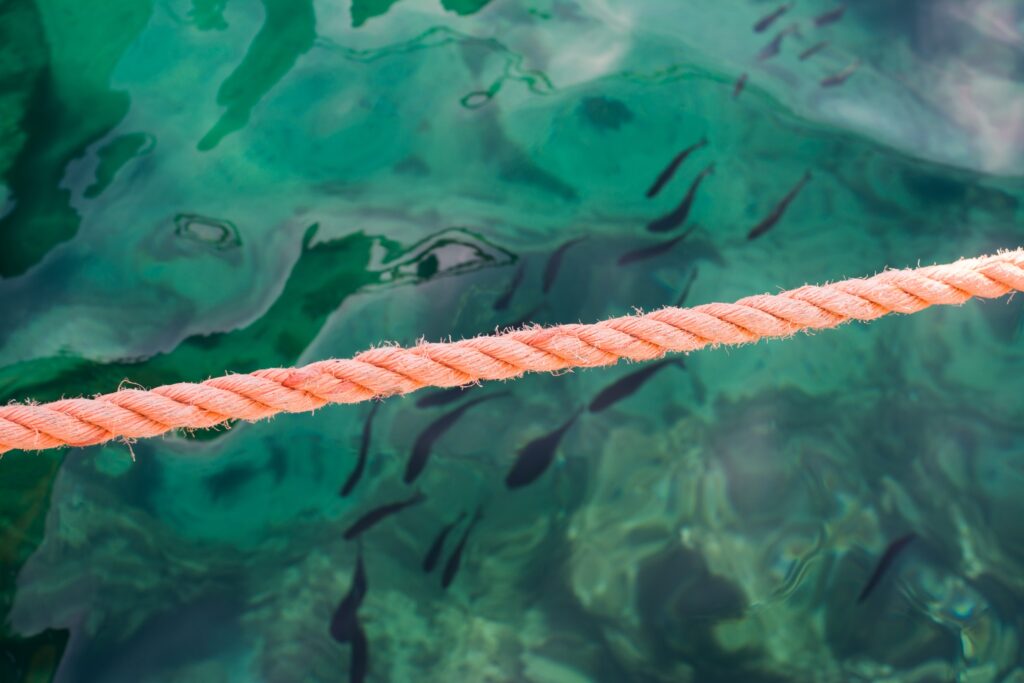
Before buying a natural or synthetic rope, there should be a few factors taken into consideration. Think about the job you want your rope to do: are you using them indoor or outdoor, what sort of stress might they be put under, and how long do you need them for. Having a clear idea of their use and properties will help you immensely when selecting the perfect rope.
What can you use natural and synthetic ropes for?
Ropes can be used for practically anything, from marine use to arts and crafts, they’re very versatile. So, what exactly can each type of rope be used for?
Natural rope
These rustic, rough and ready ropes are perfect for industry or decorative use. Before the creation of synthetic ropes, their natural counterparts were used for everything and anything. From climbing to clothing, and farming to cat-scratching posts – they have a variety of uses. Natural ropes have a better grip for tying knots than synthetic ones – which are prone to slipping.
Synthetic rope
Strong, lightweight and hard wearing, poly ropes have become a great alternative to other ropes. Polypropylene and polyethylene ropes are great for usage on lorries, for towing and for marine use. As they are water resistant, they’re great for aquatic purposes.
Material
The composition of a rope is very important as this will ultimately decide how well your rope performs in other areas.
What are natural ropes made of?
Made up of all natural fibre, these ropes can be formed from plant fibres, such as manila, jute, sisal, cotton and natural hemp. Ranging from 6mm to 28mm, natural ropes have been a consistent favourite long before synthetic ropes were created.
What are synthetic ropes made of?
Poly ropes are made up of synthetic polymers, such as polyethylene, polypropylene and polyester – along with many others. The benefit of these polymers is that they make the rope extremely strong.
Strength

Probably the most important factor to concern yourself with when it comes to ropes is strength. The stronger the rope, the higher the likelihood of it serving the purpose you want it to.
How strong are natural ropes?
In most cases, natural ropes are very strong, but due to their plant fibre composition, they are weaker than poly ropes. Saying this, natural ropes still have plenty of benefits that shouldn’t be ignored.
How strong are synthetic ropes?
With a higher tensile strength and elasticity, poly ropes are generally stronger than natural ropes. These ropes are lightweight, but don’t let that fool you – they are amazing at absorbing high impacts.
Durability

What can each rope withstand? Synthetic and natural ropes have varying durabilities when faced with water, fire and extreme temperatures. Which one fares the best?
How durable are natural ropes?
One of the main issues when opting for the more natural rope is that when they get wet, they shrink. This occurs as the plant fibres absorb water and increase in size, therefore decreasing the length. Apart from this, a natural rope is pretty great at withstanding high heats and freezing temperatures – but it will burn if exposed to fire. We recommend treating your ropes for the best outdoor use, this can be with decking oil or any other preservatives available at your local DIY store.
How durable are synthetic ropes?
Water resistant and unshrinkable, poly ropes are amazing for those rainy days. Although, they don’t react as well in freezing or extreme temperatures, as they can experience damage or even melt slightly. So, keep your synthetic ropes away from fires at all costs.
Lifespan
The lifespan of any rope depends on two things – how well you look after it and what type of rope it is. Not ensuring that your ropes are well maintained will impact on the lifespan.
How long will a natural rope last?
As natural ropes are made from plant fibres, it’s not uncommon for them to rot if left damp for extended periods. Over time, the molecules within the natural fibres become weaker as they are not held together chemically.
How long will a synthetic rope last?
Due to the polymer nature of synthetic ropes, they tend to last a lot longer than natural ropes. As they don’t suffer from damp or water damage, there’s no chance of the rope rotting. If you’re looking for a rope that’s easy to look after, and that will stand the test of time, a poly rope is probably your best bet.
Environmentally friendly?

Looking after the environment is more important than ever, so considering how sustainable your rope is may be a big factor.
Are natural ropes sustainable?
A bonus to using natural ropes is that they are completely biodegradable and environmentally friendly. As they are composed of plant fibres, these ropes are an amazing choice when it comes to protecting the environment.
Are synthetic ropes environmentally friendly?
Despite their best efforts, poly ropes are not completely eco-friendly. Synthetic polymer fibres and lots of chemicals are used to form this type of rope. As they won’t break down naturally, we suggest keeping your poly ropes in tip top condition and keeping them for as long as you can, and then recycling them properly.
Which rope is best?
When it comes to officially deciding the winner between a natural and a poly rope, we think we’ll leave that one up to you to decide. If you’re thinking about purchasing some ropes, contact us and we can help you decide which one is right for you.
